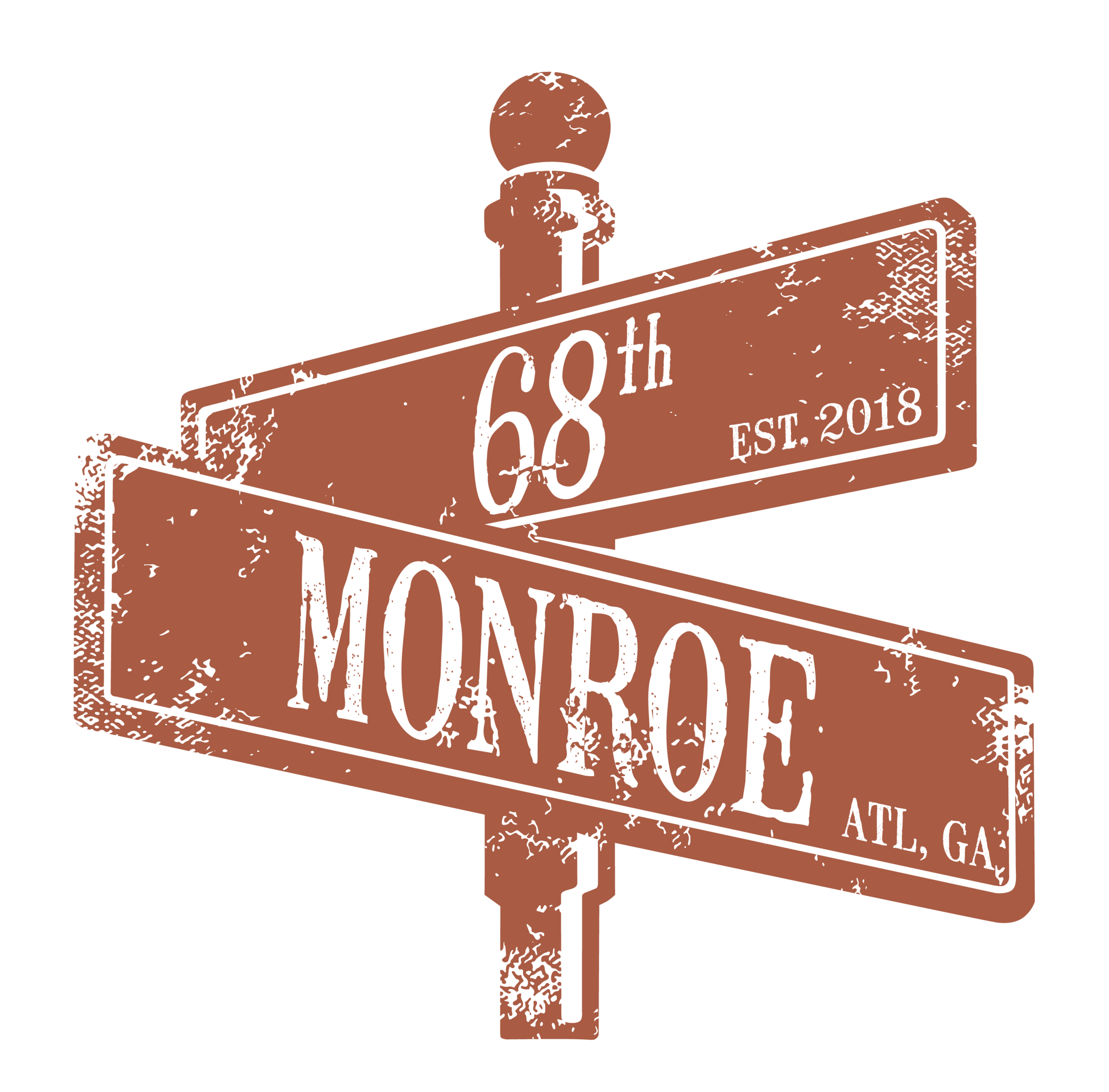OUR PROMISE
68th & Monroe carefully sources premium ingredients, locally wherever possible. OUR PROMISE TO YOU, our products are:
Fragrance Free
Paraben Free
Petroleum/Mineral Oil Free
Refillable*
Sulfates/Phthalates Free
Sustainably Sourced
Vegan^
Zero Waste Packaging
*^Most Products
You may not be aware, but many of our favorite, brand-name skin care products contain harsh or toxic chemicals that can ravage the skin, causing irreversible damage over time. The list of harmful chemicals is too exhaustive to name them all, however, here are the more common ones you should ALWAYS avoid:
Ben-zyl Al-co-hol: This ingredient is made naturally by many plants or can be synthetically derived. It is typically used as a preservative and based on its placement on the list is in low concentration. Benzyl Alcohol is not known to be a carcinogen or teratogen, though it is a mutagen in bacteria and yeast, and may be toxic to the liver and central nervous system in pure form.
Di-me-thi-cone: Dimethicone is a synthetic chemical polymer siloxanes derived from silica. They are used as a skin conditioning agent and it forms a protective barrier on the skin the prevents moisture from leaving or entering, which can be harmful to skin.
Dis-tea-ryl-di-mo-nium Chlo-ride: Also known as Dimethyldioctadecylammonium chloride or distearyl dimethyl ammonium chloride is a quartnary ammonium salt. This ingredient is synthetically derived and is a positively charged surfactant that is used as as an emollient, anti-static, and smoothing agent. This ingredient can be an irritant to mucous membranes and upper respiratory tract in pure form.
For-mal-de-hyde: Despite decades of research that classifies formaldehyde as a known carcinogen, it’s still a fairly common ingredient in hair straightening products, nail polish, eyelash glue, and an array of other cosmetics.
Fra-grance: Fragrances (or perfume) are in nearly 50% of all cosmetic products. These blends of aromatics which give beauty products their trademark scents are often a mix of chemicals. Fragrance is essentially a catch all term for “secret ingredients”. The problem with fragrance is that the current laws do not require companies to tell consumers what is actually in these secret “blends”.
Par-a-ben: Parabens are cheap preservatives used in a wide range of cosmetic products. They prevent bacteria, mold, fungus and even parasites from growing. Almost 60% of all cosmetic products contain parabens.
Oxy-ben-zone: A potential endocrine disruptor, oxybenzone can be found in many skincare products that contain sunscreen, including lotions, lip balms, cleansers, fragrance, and even baby products.
Pe-tro-leum & Mi-ne-ral Oils (Petrochemicals): Used in skincare products for a variety of reasons, petrochemicals have been linked to major health concerns. Petroleum-based products can be contaminated with dozens of toxic chemicals, some known to cause cancer and damage nerves.
Phthal-ate: Phthalates are a group of chemicals used to make products more liquid and less dry and are commonly found in nail polish, shampoos, creams and moisturizers. Several medical studies show links to serious issues such as male and female reproductive defects, asthma, ADHD, breast cancer, and even diabetes.
Pro-py-lene Gly-col: Propylene glycol (also known as PG) is an ingredient in a variety of liquid skincare products, as well as in antifreeze, brake fluid, and paints. PG allows harmful chemicals to seep further into your skin and bloodstream than they could otherwise do on their own.
Re-sor-ci-nol: This common ingredient in hair color and bleaching products has been linked to skin irritation and immune system dysfunction in animal studies, resorcinol can disrupt normal thyroid function.
Si-lox-anes: Also known as cyclical silicones, these compounds are found in a variety of cosmetic and skincare products—but they’re not great for the environment, and have been linked with endocrine disruption as well.
Sod-ium Lau-ryl Sul-fate (SLS): This is one of the most common ingredients used in shampoos, soaps, body washes and just about anything that creates a thick foam. Sodium lauryl sulfate (SLS) is in up to 90% of skin care products.
Talc: Talcum powder (often used as a smoothing agent in mineral makeup, has the potential to be contaminated with asbestos, which is a known carcinogen and instigator of lung disease.
Tef-lon: Teflon is the brand name for Polytetrafluoroethylene (PTFE), and is sometimes added to cosmetics to improve the texture. But like other PFAs, it’s linked to hormone disruption and reproductive issues.
Tri-clo-san: Triclosan (also known as Microban) is another chemical commonly used as a preservative in skincare products. Any skincare product that claims to have anti-bacterial properties likely includes triclosan. Triclosan can disrupt your natural hormonal balance and weaken your immune systems.
To-lu-ene: This chemical (which also goes by the name of Butylated Hydroxytoluene, or BHT), is a big no-no: It’s linked with brain toxicity and can be especially dangerous during pregnancy. While it’s banned in the EU and Southeast Asia (as well as by a few retailers in the US), you can still find it nail polish, nail treatments and hair dye.
References:
https://www.ewg.org/skindeep/
https://www.consumeraffairs.com/health/organic-skin-care
https://www.byrdie.com/toxic-beauty-ingredients-4782646

